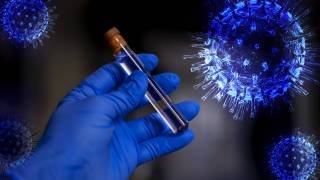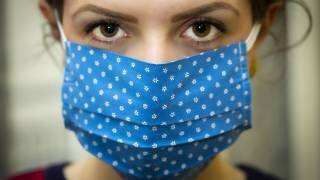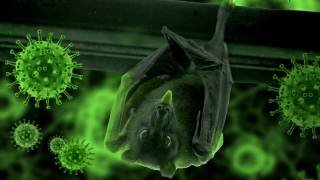Should Pregnant Women Be Screened For COVID-19 Disease?

With the sharp increase in the number of infections, the number of pregnant women and children with COVID-19 is also on the rise. A recent study based in China on 19 neonates born to affected mothers have been investigated, and to the knowledge of these researchers, no information on early-onset infection in newborns has been identified.
Due to the immature immune system and the possibility of vertical transmission from mother to infant, neonates have become a high-risk group susceptible to COVID-19 disease.
In this cohort study, research letter, published by JAMA Pediatrics on March 26, 2020, all neonates born to mothers with COVID-19 disease were recruited from Wuhan Children's Hospital, in Wuhan, Hubei Province, China.
Consistent with previous studies, the clinical symptoms from 33 neonates with or at risk of COVID-19 were mild and outcomes were favorable.
Of the 3 neonates with symptomatic COVID-19, the most seriously ill neonate may have been symptomatic from prematurity, asphyxia, and sepsis, rather than SARS-CoV-2 infection.
In this cohort, 3 of 33 infants (9%) presented with early-onset SARS-CoV-2 infection.
Because strict infection control and prevention procedures were implemented during the delivery, it is likely that the sources of SARS-CoV-2 coronavirus in the neonates’ upper respiratory tracts or anuses were maternal in origin.
Although 2 recent studies have shown that there were no clinical findings or investigations suggestive of COVID-19 in neonates born to affected mothers, and all samples, including amniotic fluid, cord blood, and breast milk, were negative for SARS-CoV-2, the vertical maternal-fetal transmission cannot be ruled out in the current cohort.
Therefore, these researchers state that ‘it is crucial to screen pregnant women and implement strict infection control measures, quarantine of infected mothers, and close monitoring of neonates at risk of COVID-19 disease.’
And, in neonatal intensive care units, to prevent and control SARS-CoV-2 infection, there should be practical measures to ensure the optimal management of children potentially to be infected.
Furthermore, the US Center for Disease Control and Prevention suggest pregnant women ask their healthcare provider for guidance during this outbreak.
The CDC said online as of March 17, 2020, 'there does not appear to be an increased risk of miscarriage for pregnant women who are infected with COVID-19.’
Based on data from other coronaviruses, such as SARS and MERS, the American College of Obstetricians and Gynecologists noted as of March 13, 2020, that pregnant women who get COVID-19 may have a higher risk for some complications, such as preterm birth, but the data are extremely limited, and the infection may not be the direct cause of preterm birth.
Research Corresponding Author: Wenhao Zhou, MD, National Children's Medical Center, Children’s Hospital of Fudan University, 399 Wanyuan Rd, Shanghai 201102, China (zhouwenhao@fudan.edu.cn). Researcher Conflict of Interest Disclosures: None reported.
SARS-CoV-2 outbreak news published by Coronavirus Today.
- Neonatal Early-Onset Infection With SARS-CoV-2 in 33 Neonates Born to Mothers With COVID-19 in Wuhan, China
- Clinical analysis of 10 neonates born to mothers with 2019-nCoV pneumonia
- Clinical characteristics and intrauterine vertical transmission potential of COVID-19 infection in nine pregnant women
- Chinese expert consensus on the perinatal and neonatal management for the prevention and control of the 2019 novel coronavirus








.jpg)

.jpg)




.jpg)






.jpg)

